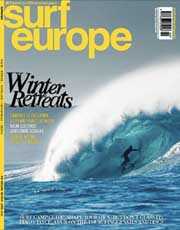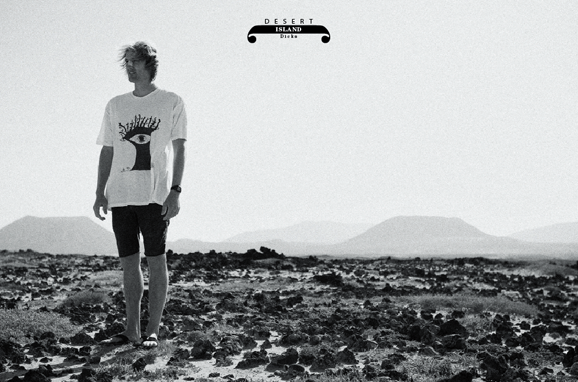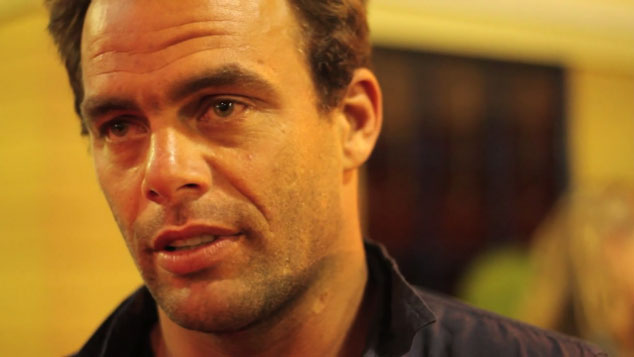
Portugal has decriminalized recreational drug use, putting it in the now rare position of being more tolerant of drug abuse than the sport of surfing. Supertubos. Photo: Laurel
If you are a follower of professional surfing and you haven’t been a) hiding in a cave or b) in a narcotic stupor, you may have heard that the ASP have introduced an anti-doping policy for the 2012 tour.
The official announcement from Richard Grellman, the ASP Executive Chairman stated, “The desire to initiate this kind of policy has existed within ASP for several years now and with the approval of resource and budget allocation at the November 2011 Board Meeting, we are pleased to announce its activation. We believe this to be an important further step in enhancing professional surfing.”
The policy will apply to all the top 34 men and top 17 women, plus wildcards who will be competing on the elite level ASP World Title Series, starting with the Quiksilver and Roxy Pros on the Gold Coast.
Now sure drug testing is hardly new in surfing, although it must be said, considerably newer than drug taking in surfing. Surfing events have had some form of drug testing being in place for over a decade. Probably the most famous example being Neco Padaratz who tested positive for steroids back in 2004 in Hossegor. Padaratz was banned from the 2005 tour, although did return to the elite level.
Previously though the ASP allowed event licensees to conduct testing administered by event sponsors, who often only got involved if the national governments became interested, for whatever political or sporting reason. The new ASP Anti-Doping Policy however will be systematic and follows the standards prescribed by the World Anti Doping Agency Code. This is the same standards, prohibited list and testing as performed at the Olympics and brings surfing into line with other international sporting bodies. The tests will cover both performance enhancing and recreational drugs, with penalties for trafficking and administering covering 4 year ineligibility to lifelong bans.

Now sure, surfing and drugs have a had a long and colourful history. Even as far back as 1972 in an article in Surfer, Drew Kampion referred to “snow storms” in the hotel room at the World Championships. In addition some of surfing’s most famous surfers including Nat Young, Jeff Hackman, Michael Peterson, Cheyne Horan, Nicky Wood, Robbie Page, Occy, Tom Carroll and Andy Irons, to name just a few, have been open with their taking of drugs and attempts (with varied levels of success) to not take drugs.
Of course the people most affected by the new regime, will be the surfers themselves. And in public at least, most of them have gone on record as saying they are all for the new regime. Kieren Perrow, the recent Pipe Master and ASP surfer’s rep told Surf Europe, “Look, I’d be surprised if anyone on tour was using performance-enhancing drugs, but that’s what the testing is there to prevent. The surfers will get a list of what to be aware of and what’s being tested.” Perrow would also like to see different measures and penalties to distinguish between performance enhancing and recreational drugs.
“The goal of recreational drug testing isn’t to destroy people’s careers, but to provide a path to helping people with their problems. It would be pretty harsh to be thrown out after one positive recreational drug test and have it made public. It would be too ruthless. The culture should be more about helping people.”
Parko, who incidentally was one of the four surfers tested with Neco back in 2004, has also gone on the record as being positive, if you will excuse the pun, about the drug testing regime. “I think everyone is for it. There’s no one I know that has a problem with it. Twenty years ago would have been interesting, nowadays I think it just makes the sport look that much more professional. Hopefully it will open the door to bring in other bigger companies to sponsor events and stuff like that.”
Of course this seems to be the overriding goal of the drug tests, for both the ASP and surfers. Everyone seems to cling to the ideal of having mainstream acceptance, of being seen as a legitimate professional sport and, one day, actually make the Holy Grail, the Olympics.
“I think it is probably overdue in terms of surfing being considered a professional sport and that’s what we want it to be,” said Ace Buchan, surfing’s most thinkingist man. “I regard having drug testing in pro surfing as helping to legitimize us as a proper professional sport.”
Those sentiments were echoed by fellow Aussie Bede Durbidge. “It’s so the general public can see we are clean and professional athletes. If we are to be considered professional athletes then we should be seen to be conforming to international rules, especially in regard to drug testing,” said Bede.
Of course, apart from the all important drive to mainstream acceptance, the recent death of Andy Irons may have also helped hasten the process. While Andy’s official cause of death was due to a cardiac arrest, the autopsy report listed a second cause of death due to acute mixed drug ingestion and a cocktail of drugs found in Andy`s body at the time of his death. If drug testing was in place last year, it’s just possible Andy could have been helped and his death averted.
Wide conjecture of course but Perrow said his death played a role. “The ASP has had a long-term goal to bring in drug testing, but Andy’s passing certainly brought a focus to the issue,” he has said, diplomatically.
At the end of the day, it seems the impact of drug testing on the world tour will be negligible. Most people agree performance enhancing steroids probably won’t help you paddle over the ledge at Chopes or do an extra rotation at Trestles. And for those elite surfers that dabbled in the dark arts, they’ll have to decide between a few cheeky lines and a load of negative publicity and career ending ban. That choice seems fairly easy, but surfers being surfers, you just never know.
– Ben Mondy
More enlightenment of this order to be found in SE88:






